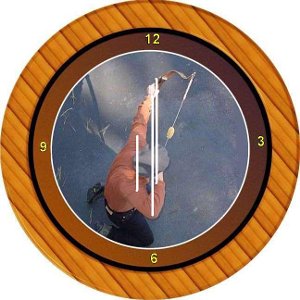What I'm talking about here, Rob, is something other than conscious or subconscious mental activity (There is also the possibility that I don't know what I'm talking about, but that wouldn't be anything new). For lack of any better description, I'll call it "body memory", like when you put a key into a keyhole. I don't think it's your subconscious mind that's directing your hand to put the key into the keyhole, and you're certainly not guiding your hand with instructions from your conscious mind.
In fact, that could be a good example of how the conscious mind could interfere with an activity. Can you imagine what a problem you would have getting a key into a keyhole if you had to direct the whole process with your conscious mind? You might start with, "now stiffen each one of the fingers on your right hand and hold them together, flex the muscles in your forearm to raise your hand up above the level of your pocket, rotate your shoulder so your fingertips touch your pants, just above your pocket, and then unflex the muscles in your forearm enough to allow your hand to slide into your pocket...."
Even those instructions, while they sound detailed, are just conceptual, because the actual muscle contractions and relaxations necessary to reach your hand into your pocket to grab your keys are magnitudes more detailed than the instructions I just listed.
I don't think it's the subconscious mind that's filling in the blanks, either, although I suppose you could define the subconscious mind to include all mental activity other than conscious thought. However, I would like to divide unconscious mental activity into two areas: the first area, which is popularly referred to as the subconscious, is a repositary of subliminal thoughts and emotions, and is the area we would like to turn control of the arrow release over to, if it would just stop playing tricks on us. The second area, "body memory," is the kind of unconscious thought that allows us to reach into our pockets, grab our keys, and place the key perfectly into the keyhole without giving it any more conscious thought than deciding that we want to open the door. This area of the mind doesn't make decisions, like when to release the arrow; it's more like a computer program for seamlessly accomplishing a series of steps, once the program is set in motion.
How much conscious control over the shot is useful, and when does it become excessive, resulting in muscle tension that masks our ability to feel the fine muscle movements that translate into an accurate archery shot? Clearly, there is no way to tune the conscious mind out completely; the conscious mind has to make the initial decision to shoot an arrow, select a particular arrow to shoot, and decide when it's time to draw the bow. The conscious mind has to be tuned in to some degree all during the shot; for example, it has to be in control enough to instantly let down rather than shoot if a dog or child were to run in front of the target.
But when the conscious mind begins giving detailed instructions on how to draw and shoot the bow, such as my example of the keys, it generally interferes with the shot.
I'm sure some people, if they have even read this far into the post, have concluded that this is baloney because they have never had any interference from their conscious minds, and can't imagine that ever happening. They're like my neighbor, who the first time he picked up a 2 iron, hit a golf ball 175 yards straight down the fairway, and I don't think he's mis-hit a two iron since. They don't overanalyze things; they just do them.
Then there's those of us who are compelled to conceptualize everything: we asked too many questions when we were children, and we still want to figure out exactly how everything works. It is with these people that I might strike a common chord. But even among those of us who tend to overthink things, there are still times when we need to stand in front of a blank bale and really think about some tiny little aspect of our shot. But probably in the middle of a tournament or even in a friendly competition with your friends isn't the best time to do that.
A technique that I've found to help in situations where overthinking the shot isn't the best plan, which I alluded to in my first post, is to change the point of view of your conscious mind from being the director to being an observer. Generally, I find that my body draws my attention to whatever needs to be corrected. For example, if I have tension in my string hand, then I'll notice my string hand during the shot. As a director, I might determine that I should relax my string hand on the next shot, which might work, or might just increase my overall muscle tension and make the next shot worse. As an observer, I will simply pay a little more attention to what's happening with my string hand on the next shot, without trying to correct anything. I might, for example, try to notice over several shots if the tension in my string hand seems to be increasing or decreasing. For me, this seems to be be as effective as trying to reduce the tension in my string hand and usually does not have the adverse effect of increasing the overall tension in my body.





